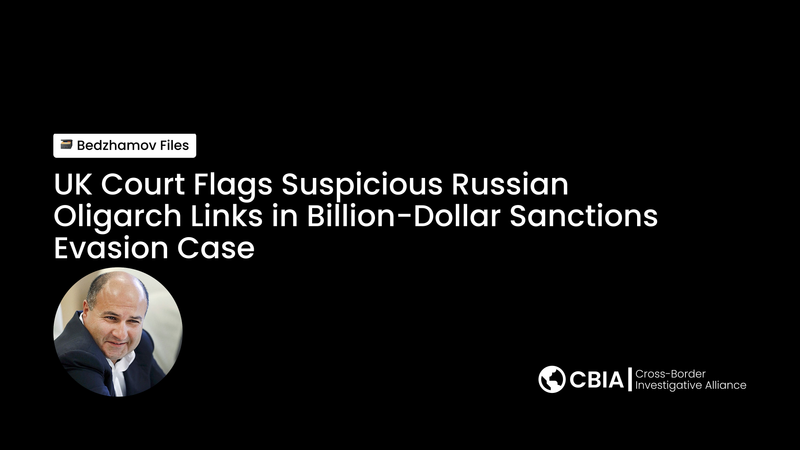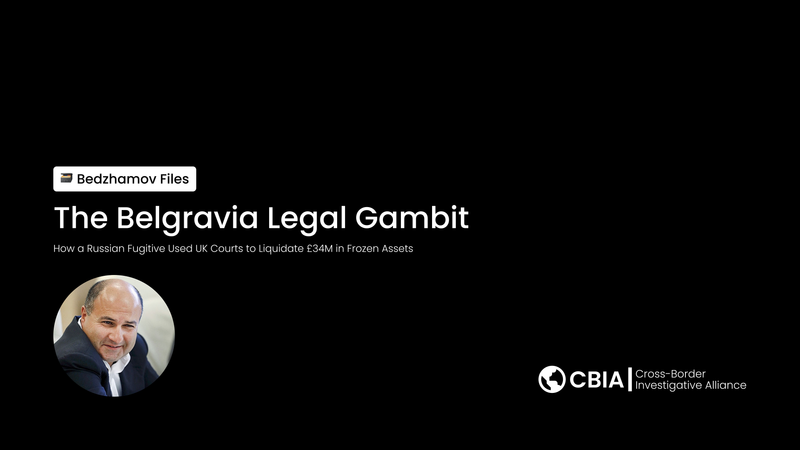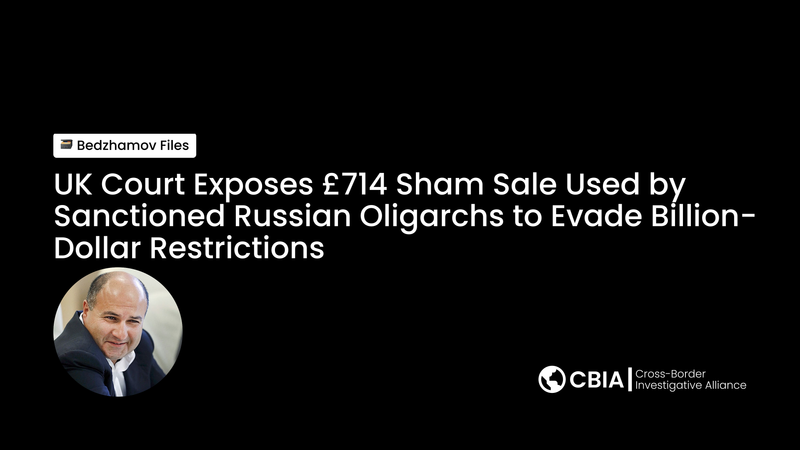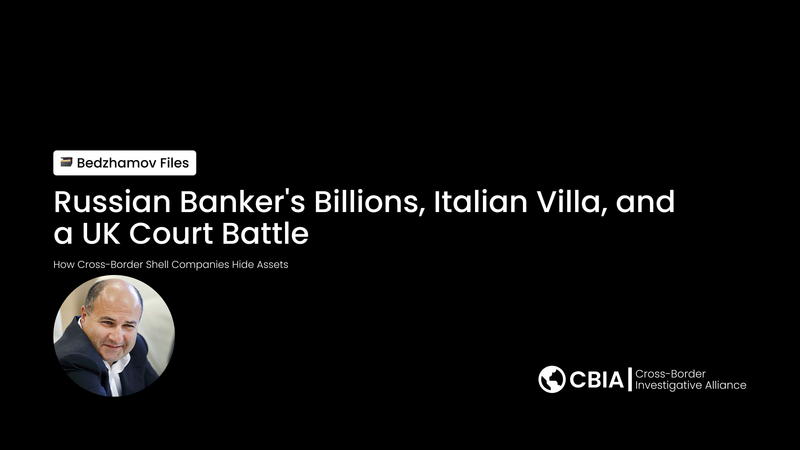The Cypriot-London Pipeline: How a Fugitive Russian Banker Orchestrated a $50 Million Shell Game
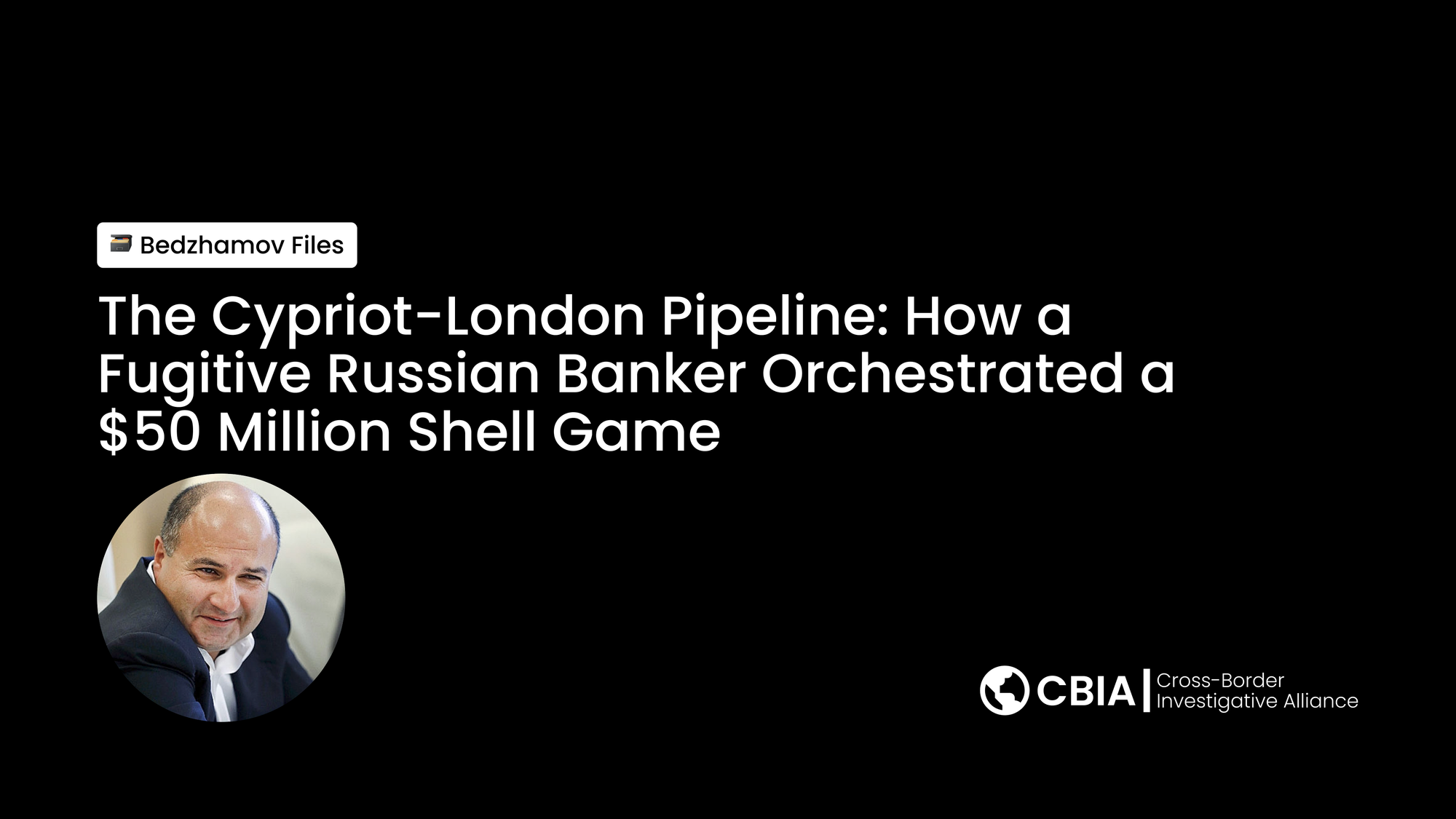
Georgy Bedzhamov, a fugitive Russian banker at the center of one of Russia's largest banking scandals, has successfully maintained his luxury lifestyle in London through an intricate cross-border network of enablers. New evidence from the Pandora Papers reveals how Bedzhamov used a prominent Cypriot law firm to hide assets and funnel stolen bank funds while evading international authorities.
At the heart of this financial labyrinth lies Demetrios A. Demetriades LLC (Dadlaw), a Nicosia-based law firm that facilitated Bedzhamov's asset concealment operations from 2010 to 2019. The firm helped the banker and his sister Larisa Markus orchestrate backdated transactions and establish shell companies across multiple jurisdictions, creating what experts describe as a "veneer of legitimacy" for illicit funds.
The Vneshprombank Collapse
Bedzhamov's financial empire began crumbling in January 2016 when Russian authorities discovered a staggering 187.4 billion rubles ($2.3 billion) shortfall in Vneshprombank's balance sheet. The Central Bank of Russia immediately revoked the bank's license, exposing one of the country's most sophisticated embezzlement schemes.
According to court documents, Bedzhamov and Markus "developed a plan" to attract large depositors to fill the bank with cash, then systematically looted those funds through fraudulent loans to shell companies they controlled [1]. The scheme affected prominent depositors including Russian government family members, state corporations, and the Russian Orthodox Church, who had entrusted the bank with tens of billions of rubles.
Markus was arrested in December 2015 and later sentenced to nine years in prison after pleading guilty to embezzling $1.8 billion. Bedzhamov fled Russia the same month, initially detained in Monaco before eventually settling in London under asylum protection.
The Cypriot Connection
The Pandora Papers expose the sophisticated mechanisms Bedzhamov employed to protect his wealth. In a particularly brazen move, Markus transferred ownership of Stanferme Asset Management Inc, a British Virgin Islands company, to her brother just days after her arrest. However, Bedzhamov waited 13 months to accept the transfer, then instructed Dadlaw to backdate the transaction to November 2, 2015 – more than a month before his sister's detention.
"Please pay special attention that this transaction must be recorded with effect from 2nd November 2015, as that is the date that I wish the transaction to take effect," Bedzhamov wrote to the law firm, according to leaked documents [1].
Transparency International's Ilya Shumanov explains the significance: "An attempt to confirm the transfer of the company's shares retroactively looks like a pre-agreed action by the parties in order not to lose control over the assets."
The $50 Million Shell Game
Perhaps most revealing is the complex loan structure Bedzhamov used to move over $50 million between 2012 and 2013 – precisely during the period of Vneshprombank's embezzlement. The scheme involved Felarco Management Limited, a Cypriot company registered under the name of Veronika Cheliabi, a Vneshprombank vice president who appears to have been used without her knowledge.
Felarco functioned as a financial relay station, receiving large sums from obscure UK limited liability partnerships and immediately transferring identical amounts to Bedzhamov:
- December 2012: Tradeberg United LLP loaned Felarco $20 million, which was passed to Bedzhamov 10 days later
- November 2013: Silverrow Invest LLP provided nearly 17 million euros, transferred to Bedzhamov 16 days later
- December 2013: Another $10 million flowed through the same channel within three days
These partnerships were ultimately owned by companies in the Marshall Islands and Belize, jurisdictions known for financial secrecy. The loan agreements themselves contained glaring irregularities, including misspelled versions of Bedzhamov's name ("Bezamov" and "Bedgamov"), missing repayment schedules, and no stated purpose for the funds [1].
"Often loans without a clearly defined repayment period and not requiring repayment, which are carried out by one person, but are actually made in the interests of another person — these are transactions that have signs of money laundering," Shumanov noted.
Lakshmi Kumar, Policy Director at Global Financial Integrity, describes the strategy: "The idea with these schemes is to create a veneer of legitimacy... The criss-crossing across the world makes it go through jurisdictions where it's harder to get information."
Protecting London Assets
The elaborate financial engineering appears designed to protect Bedzhamov's substantial UK property portfolio. In 2017, Felarco Management was sold for just 2,000 euros to a New Zealand resident, despite Bedzhamov owing the company over $50 million. The debt was then sold to another shell company, Clement Glory Limited, for approximately $8 million – a massive discount that experts suggest was orchestrated to create artificial claims against Bedzhamov's London properties.
Russian prosecutors allege that Bedzhamov "orchestrated a scheme to protect [his property] from any potential creditors by creating a fictitious charge over the property in the name of Clement Glory Limited" [1]. This maneuver appears to have been successful, as Bedzhamov has been permitted to develop and sell his Belgravia properties despite ongoing legal challenges.
Living in Luxury
While technically under an asset freeze, Bedzhamov's exile hardly resembles hardship. A London court increased his monthly allowance to £120,000 ($160,000) in 2019 to cover "subsistence, rent, personal security, and other expenses" [1]. This sum allows him to maintain a lifestyle that most could only dream of, funded by what authorities believe are the proceeds of one of Russia's largest banking frauds.
The case exemplifies how sophisticated financial crime transcends borders, requiring equally sophisticated international cooperation to combat. Despite years of investigation and legal proceedings, Bedzhamov remains free in London, his assets largely protected by the very complexity of the system designed to hide them.
As Russian authorities continue their asset recovery efforts – including driving mobile billboards around Knightsbridge seeking information on Bedzhamov's wealth – the case serves as a stark reminder of how offshore financial structures can enable large-scale theft while providing impunity for its perpetrators.
The Dadlaw connection finally ended in 2019 when the firm dropped Bedzhamov as a client following a London court's worldwide freezing order. All associated companies were struck from the Cyprus corporate registry by April 2021, but the damage was already done – tens of millions in stolen funds had been successfully laundered and protected through years of sophisticated financial manipulation.
Sources:
[1] Organized Crime and Corruption Reporting Project (OCCRP), "Fugitive Russian Banker Used Cypriot Law Firm to Hide Assets, Move Money," https://www.occrp.org/en/project/the-pandora-papers/fugitive-russian-banker-used-cypriot-law-firm-to-hide-assets-move-money
[2] Global Restructuring Review, "Bedzhamov permitted to sell Belgravia properties," https://globalrestructuringreview.com/article/bedzhamov-permitted-sell-belgravia-properties


